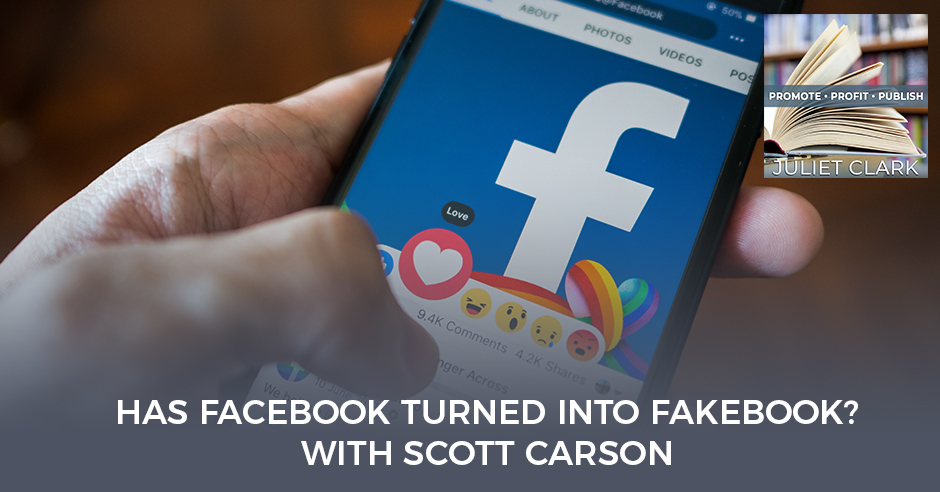
A recent article about Facebook dropped the bomb that Facebook was fined for artificially inflating video views in which the average viewership metrics were inflated by up to 150% to 900%. On today’s show, Juliet Clark is joined by Scott Carson to talk about this controversy and Facebook’s $40-million settlement. Scott has been a podcaster for over three years now with a show called The Note Closers Show. He also discusses the instances or violations that social media platforms like LinkedIn and Twitter could ban you for, and shares some tips on how to get great guests on your show.
—
Watch the episode here
Listen to the podcast here
Has Facebook Turned Into Fakebook? With Scott Carson
I’m so excited to have you, Scott.
I am excited to be here too. I’m sorry. I don’t have anything fancy like martinis or snacks. I have just some good old-fashioned sugar-free root beer.
That’s it, sugar-free? Isn’t the sugar-free bad for you?
No. It’s better than sugar. Who knows? I can’t have any more coffee otherwise, I won’t sleep.
For those of you who don’t know Scott, he does a show five days a week. Tell people a little bit about who you are, what you do and why I ask you here.
I’m in Austin, Texas. I’ve been a podcaster for a couple of years, but a marketer since 2014 for the most part. I enjoy the marketing side of the business. My full-time gig is I run a company called WeCloseNotes.com. I have a show called The Note Closer Show. We focused on buying, selling and educating other people how to buy, invest in distressed debt, mortgages or notes. I have to thank Tracy and her husband, Tom, for convincing me over six months to take the webinars that I was doing on a regular Monday night, which I usually do at 7:00 PM Central with our audience. They’re like, “You should start a show. You’ve got some great stuff. You’re doing all these Facebook Lives sharing little things. It’s easy to transition to a show.” I was like, “I don’t want to do all the work.” They’re like, “No, we’ll do all the work for you.” I’m like, “Done. What do I’ve got to do?”
Fast forward 500,000-plus downloads later, our show is syndicated across the country at seventeen AM, FM radio stations and over 100 countries across the world. The reason you have me here is I dominate my niche in the real estate world in the marketing side. I don’t think anybody else has a better job than me and my team. I’m here to help out anybody that’s out there that’s looking for some help with some marketing, how to share their show or how to draw the audience to it or any other things that we can help them to take their show to the next level.
You made the plug from Monday Night. You might as well tell us where we can find that show.
If you text the word, NIGHT, to 7200, that will take you to a registration link for our Note Night in America webinar that we do that’s also a podcast out there.
He made you an offer there. Let’s get into that conversation about Facebook changes we heard about.
I heard it. I went out to our local Austin Podcasters meetup and one of the hosts there’s a friend of mine. We love Facebook. There’s always the thing about whether you’re sharing a show and if the audience is true, the views, the clicks and how it’s different compared to Facebook and YouTube. On Facebook, if somebody is on your video for three seconds, they count it as a view. Whereas YouTube makes people want to watch a lot longer than that. Usually, 30 seconds counts as a view. The two is a big difference through clicks and things like that as far as people viewing. What some people are doing, this is one thing that I was doing is I would do a live stream and get a thousand people on an hour-long show. I was like, “Yes, awesome.”
There’s an article that came out on October 13th, 2019 that said, “The numbers that Facebook has been telling you who’ve been watching your stuff is not right. Facebook was fined for artificially inflating video views.” Not just a little bit. They said they were only exaggerating sometimes 45% of the time. That’s like, “I once caught a fish and it’s big.” They were lying about views by 150% to 900%. This caused media companies to go bankrupt and job loss because there were whole companies and shows designed around Facebook. They were using the Facebook numbers as their real numbers to drive engagement, sponsorships and all that stuff up there.
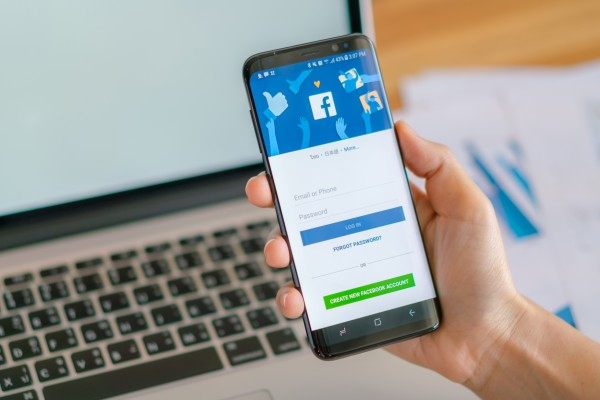
Facebook Changes: Facebook was fined for artificially inflating video views by up to by 150% to 900%.
That’s a pretty bad thing. This is a sad thing. It also says, “The suit accused Facebook of acknowledging miscalculations in metrics upon press reports, but still not taking responsibility for the breadth of the problem. The average viewership metrics were not inflated by only 60% to 80%. They were inflated by 150% to 900%.” Facebook claims violating unfair competition law, breaching contract, committing fraud. Facebook contested advertisers’ injuries, questioning whether they relied on those metrics and decided to purchase ad time. In early rounds in the litigation, Facebook was successful in getting the judge to park the claims. Until a settlement was announced, several of the claims including fraud were still alive. Even after agreeing to pay $40 million for settlement, Facebook maintains the suit is without merit.
You know where all of your fake advertising costs go when you put advertising dollars into Fakebook. They send all those fake people who didn’t click from Nigeria or other countries out there that wouldn’t be interested in what you’re doing? Now you know why. They get fined. They lie. How did their shareholders make any money?
It was only 0.1% of one day of budget they set in it. It didn’t affect them in a derogatory status. It’s only about 0.18% of their annual income. It’s just a drop in the bucket. I’m a big believer in no matter what field. We’re all in the media-base. This is why I’ve been a huge proponent that you have to take your show and share it across multiple platforms. It’s not just Fakebook, but you’ve also got to share it to YouTube. You also got to share it on LinkedIn, which is a great place. You’ve also got to take the audio and share it to multiple places. I’m always amazed that many podcasters have the field of dreams mentality. If you record it, they will come and that’s not the case. You have to build it for them to come.
Reach out to people. Get in the habit of asking. They’re not going to bite. Share on XThat only worked for Kevin Costner because he’s cute and he had Hollywood money behind him. It doesn’t work for the rest of us.
I love Kevin Costner. He’s a great guy. I played second base in the minor leagues. Most people don’t know that. A lot of the things he did, Tin Cup, one of my favorite movies, he hit a lot of the shots in the movie. Let’s not be bashing on old Costner.
I’m not bashing on him. I’m just saying most of you can’t walk through a cornfield and get what you want from Fakebook.
I think it’s still a good show. You need to be posting there. You need to take it with a grain of salt because it also comes in an absorption rate show when they talk about this. A podcast movement talked a lot about this too that people only zorb your Facebook videos about 1% absorption. Truly sitting through it, listening to it before they get the whole scroll thing. It’s easier to scroll on Facebook than it is on YouTube. On YouTube, you get about 11% to 12% absorption ratio show where people that are coming to it and watching it are actually sticking around for a while. What’s great is when you look at the demographics or the analytics of both, you can see how long on average people stick around.
The thing about podcasting and having the audio side is that the absorption rate is roughly around 86% because once they plug it into the eyeballs, they stick around until almost the end. That’s the beauty of it. That’s why they can read a full story or a full article. If you’re in the process of leading down the path to buy class or train, you do have the time to sell them on what you’re promoting. A lot of times with Facebook, and I think even the YouTube, we get so inundated with ads a lot of times on the front end or buy versus seeing what’s going on. We don’t have as much time to the very end.
Facebook is pretty easy. How do you use it in some place like LinkedIn? LinkedIn for the most part, there were very few people who are baiting LinkedIn Live.
I’m still not on there. It’s like a six-month trial bait and wait until you get there. Here’s the thing about LinkedIn, you can still share a lot of great stuff there. I still like to share YouTube videos, even though they’re not specific or native content that’s original to LinkedIn. I’ve got some friends that are doing short ten-minute teaser videos, like a preview. “Here’s a quick preview of the episodes.” They upload the ten-minute video directly on LinkedIn. It’s one of the places and they have a link to the full episode, either the podcast or the YouTube video below it in the comments or in the description. Podetize takes our episode, does the full transcription and goes to my website, WeCloseNotes.com and write a full blog.
What my staff does is we take the first 2, 3, 4 paragraphs of it. We take the artwork and the infographics that they create and we go over to LinkedIn and we create a little custom blog or article with a nice image, a couple of paragraphs of content to get people interested, then a link where they can listen to the show or a link to the video. They can watch it on YouTube, whichever one they prefer. I have a little bit more seasoned audience, 35 to 65 is our audience, so not everybody’s a podcast listener on there. I want to give them a spot, where if they don’t understand what Spotify is or Apple podcasts, they can click on YouTube and watch the same episode and listen to it as well too.
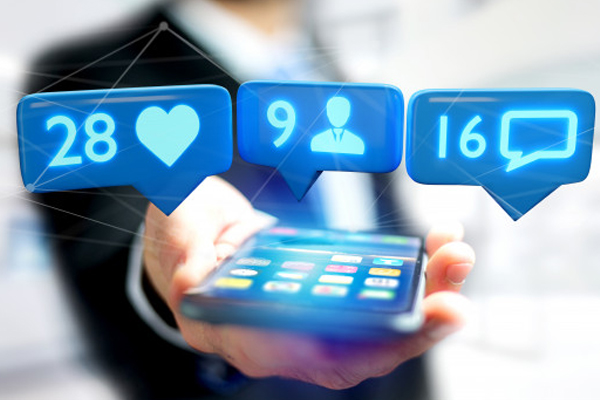
Facebook Changes: You can increase your numbers by taking one little extra step when an episode is released by posting it in the groups.
Do they not read?
They read, but we know a lot of people are lazy and would rather watch it. They can go over to the website and read if they want to. It’s right there for them too.
I do the same thing over on LinkedIn. I create an article every week and I find that the articles get a higher ranking and more looks than just posting it, but I do both over there. Here’s what else I do with it that I would love to share if it’s okay. I also use a lot of those. If I have somebody that I’ve connected with that is asking questions or I’ve had a call with someone, I write a little thank you note over there. I’ll drop one of those podcasts’ links in there for more information for them. For me, that’s a good use for them. I don’t know if they ever listened to them, but it makes me feel good.
Something that worked well and that I was blown out of the water with LinkedIn. I haven’t spent much time on LinkedIn group, especially some of the larger groups. It’s people posting. It’s not a lot of insightful information. It’s a lot of, “Sign up for my stuff or buy my stuff.” That’s okay. I’m part of some big groups like 500,000 big distressed real estate group. For the first time in a long time, I went over and shared my article and changed up the word who said, “Any real estate investors interested, you might want to check out my podcast, The Note Closer Show.” I’m not joking. I would see about 500, 600 average downloads per day on our show. We get somewhere between 20,000 and 30,000 downloads a month. I saw a peak of up to 1,500 downloads in one day alone on a Sunday after I posted the stuff on a Saturday. I posted it in fifteen groups on real estate or distress debt investing or stuff like that. I was surprised to see that. I told my staff, “We need to post it on LinkedIn. We need to take that one little extra step when an episode is released to go and post it in the groups and see if we can increase our numbers that way.” I don’t see a lot of people posting podcast episodes in these groups.
They’re all about me. They’re not about serving a lot of times. Here’s a question for you. I’m going to do this for the audience because I’ve been banned. What do you do on Twitter? I hate Twitter anyway, it’s so toxic.
What did you do to get banned on Twitter?
I had a subscription many years ago when I signed up with a PR person. I don’t use Twitter, but the subscription was supposed to be posting things about books. When I looked, it was posting some political stuff that I disagreed with that I got banned. I think it’s so toxic over there. I haven’t even asked for my account back. I just figured, “Keep it.”
I find Facebook more toxic than Twitter. What I’ve done with my Twitter account is, I have two types of followers or people that I follow on there. I follow real estate investors or note investors or I also follow podcasters. I have a small Twitter following for the show. On my personal, I think I follow 7,000 people and I have 9,300 followers. What I do is post things on there like episodes. I do look at and try to follow other podcasters. That helped me by using #RealEstatePodcast. I’m able to track down some other podcasters and got two bookings out of it and we have people show. That’s what I do over there. It’s not very difficult because you’re limited. I do have my Vimeo account that I use to upload videos as my storage space besides YouTube. It’s my backup in case my YouTube account gets shut down again as it did several years ago.
You got banned for something. What did you get banned for?
I got banned because I paid a VA $20 to go on there and try to boost one video. I was trying to make a video go viral and they were like, “No, shut down the account. Everything is deleted. You can’t ever even log in with that email address on YouTube or we’ll shut everything down.” I lost hours and I was making close to $700 a month on ad revenue off of that stuff. No warning, they just shut me down left and right. I started a Vimeo account and then I tried to start a new YouTube account. Honestly, I didn’t take YouTube seriously until 2019. I built up my following up for about 1,500 subscribers. I was excited. We spent more time on it in 2019 and we doubled our number. We exceeded 3,000 subscribers and we’ve seen our revenue bump back up. That’s leading to a lot of subscribers, a lot of views and then also opt-ins into our website. Increasing our revenue with people sign up for workshops and education or opt-in for other things.
I noticed you have a YouTube guy. Do you have a YouTube guy as one of the guests?
We have Marc Guberti coming on. When you say guy, I was thinking older because Mark is young. He’s 24.
The YouTube millionaires or eight.
You will like Marc because he has 26 books published as well. He just graduated as well too. He’s coming on and going to talk about decoding YouTube. He wrote a book about it. It’s a good book. Some great advice on how to maximize your content, what to do, what not to do. He’s wrapping the event. I’ve learned some tips and picked his brain. I’m about 15, 16 years older than he is too.
Elizabeth Bachman, who’s already signed up for the Mass Media, wants to do one of those quickies.
We have a three-day podcasting summit, something called Mass Media Podcast Summit. That’s a Friday, Saturday, the 24th of 26. As a bonus, I’m excited because I’ve been to different podcasts and events like New Media Summit where I had to pitch for a couple of minutes and spoke at Podfest that offers up what’s called a Pecha Kucha where they give you twenty seconds for twenty slides to get your thought through. It’s like a mini TEDx Talk. I thought I’d combine the two. From noon to 5:30 or 6:00 at night Central Standard Time, we’re going to be doing fifteen-minute sessions. We’re going to give individual podcasters that have a show, whether it’s brand new or season, ten minutes to pitch their podcast. It’s a Pecha Pod Pitch session.
We’ll be live streaming it. We’ll be recording it and then sending all the members recording that they can use in their marketing as well too. I have to update the website with all the people that have been signed up for it so far. We’re excited because if you’ve ever had 10, 15 minutes to pitch your podcast, most people are pitching their books or their topics, but pitching your podcast. We look it as a way to have you get the word out on what’s great about your show versus just posting a link or a short description in a Facebook feed or a Twitter post.
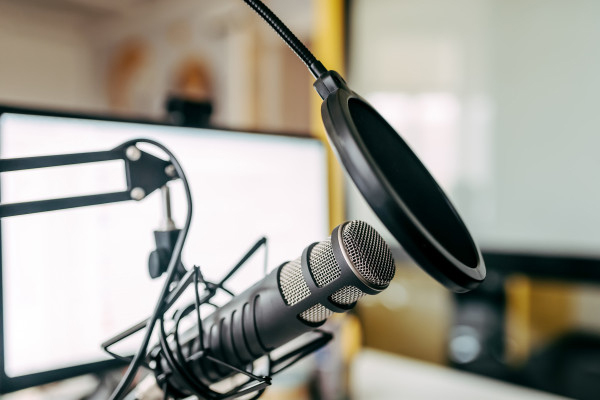
Facebook Changes: If people are going to pitch on your podcast episode, charge them something for a recording or a transcription. Your time is worth something.
If you’re interested in doing that, join. It’s pretty low cost. Where do they go?
They can go to MassMediaSummit.live. They can sign up for tickets to the event. If they use the code, JULIET, they’ll knock 50% off the ticket. If they want to watch the Thursday live stream, you can go to PechaPodPitch.com.
One of the questions I get over and over and I think you’re the king to the answer of this because you have five shows a week, how do you get good guests?
I walk into my office every day and I do an episode. It can be anywhere from 37 minutes to an hour. I don’t usually go above an hour because we are syndicated. I like to try to make the show to be 50 minutes or less.
Can you explain syndicated for those people who don’t know what that is?
My show is picked up by seventeen AM, FM radio stations across the country through AMFM247.com. I have an hour slot six days a week. I use my three best episodes of the week to go on there. They go live across the country at 9:00 AM Tuesday, Wednesday, Thursday, and those same three episodes replay Friday, Saturday, Sunday nights at 8:00. Roughly, we’re getting close to two million hits to the radio stations website. These aren’t Arbitron-rated radio stations, so it’s hard to tell the total audience, but we see 75,000 to 80,000 hits per hour per episode of people listening to the station’s website. That’s what I mean syndicated. We take the episode, I send it to the radio station and they blast it out for me across these different channels from Tampa to Long Beach.
You'll get better at asking questions when you get good questions from other people. Share on XOur next guest is Jim Beach, who you know very well too and he’s going to talk about that more.
He is a phenomenal guy. He’s the Founder of Pod24, the main host of School for Startups Radio Show. He’s an amazing guy. One of the most interesting men in podcasting that I’ve ever met.
He’s the most interesting person I’ve ever met.
He’s got some great stories and I can spend some time with him in Tampa in a podcasting convention. We were cracking up the entire time. Going back to it, in my first hour of every day I come to the office, it is always dedicated to marketing. That’s what we focus on. My show is 50% guests and 50% topics. It’s something towards my audience. I do dash in, the occasional seizing of entrepreneurship or an extra dash of business or I a little of my dissertation and marketing to go along with people in my neck of the woods. I focus on the hour and sometimes it might be 30 minutes. I tried to shoot for at least 30 minutes for that. When I do, as far as guests, I’m very stringent on my guests for the most part. They’ve either got to be in my industry or they’ve got to have that aspect of business entrepreneurship mindset or maybe something interesting that we can apply. I don’t just bring pure real estate people on. I might get four pitches. I’m like, “You don’t fit my show at all. If you’re not fit on the role, I can’t have you on.”
Because they’re boring.
A lot of them are. What happens is I get pitched a lot of people I want to come on because they want to promote their book or their training classes and I’m like, “You want me to come to my show. All the hard work we’ve done for free to promote your stuff.” If I know you, I’m fine with that but if I don’t know you, I was like, “You can sponsor a show for $500 or $1,000.” They get all upset and I’m like, “Yours is $1,900.” You can’t afford to get an audience. There’s a little tip to monetize your show. If people are going to pitch on your podcast episode, give them a fee or charged them something for a recording or your transcription. Your time is worth something. You have to be very careful too because your audience can turn on you if you’re going to do a pitch fest. You and I both know somebody who has an email and pitches something every day.
I know that’s the way you make your money but work for a living.
Give me something of value that talks to my needs versus just yelling at me.
How do you get those guests? Mine’s once a week and I go out on LinkedIn and I connect with people. It’s hysterical because they’ll be like, “Who are you? Why should I talk to you?” This is even worse. I get pitched and I’m like, “Have you read my blogs? I don’t care if you have a book. That’s not what my show is about.”
There are two ways as far as guests coming on my podcast versus mingle on somebody else’s, two different facets. Let’s first talk about having guests come on my show. I network at events. I pay attention. If there’s a conference going in my niche, I go look and see who’s the speakers on the conference. A lot of times, these conferences will give away their speaking lineup. Who’s speaking here? Who speaking there? I’ll reach out to them, whether it’s an attorney or somebody in my niche and I go, “Would you like to be a guest on my show?”
Any type of conferences, seminars, expos, that’s the first thing I do. I have students because I teach this. That’s helped us adding with different case studies that we go through. If somebody’s got an interesting deal, I’ll ask my audience. I’ll post it to my Facebook group, The Note Closer Show, “Who’s got an interesting deal they’d like to talk about?” I posted a question, “We’re going to do some live Q&As. Who wants to jump on?” We’ll do a live show with 3 or 4 people in an hour and we’re talking fifteen minutes each with them. I look at who’s out there. I pay attention to some of the different groups I’m a part of.
I look at what’s going on in the housing industry. I reached out to a self-directed IRA custodian. They have a show. I use Calendly, and I have two times in the morning and two times in the afternoon. Once I fill two spots in either the morning or two spots in the afternoon, I go ahead and block out the rest of the spot. I’m not spending four hours. I only spend 1 to 2 hours per day on the show. As far as getting me booked on other shows, I do the same thing. I go to events. If I see they have real estate, entrepreneurship or marketing shows, those are the three biggest things. I throw business in there too.
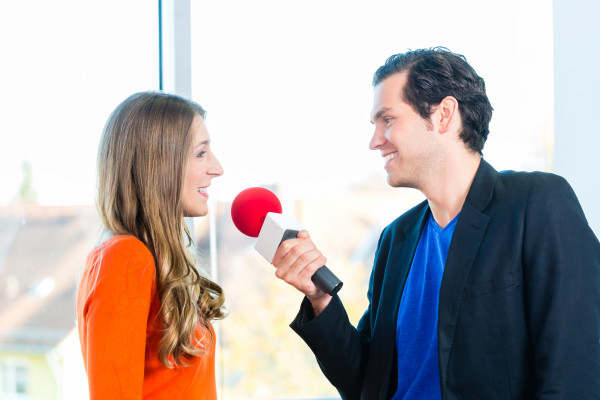
Facebook Changes: You get better as a guest and as a host by being on other people’s show.
The three things that we pride ourselves in and haven’t been able to have a conscience thought of rubbing two marbles together to provide something of value. I made this a challenge. I wanted to be on 100 shows in 2019. I ended up at 105, 106. I value this. You’ve got to realize, that’s two per week. That’s what we focus. Some days I’m doing three, sometimes there’s two. I was on one. I count, so this is one. This is technically two for the day. I reach out to people. It’s the same thing, “I think I might be a great guest for your show. Have anybody speaks on the niche of distress note investing?” “We’re doing something cool marketing-wise with this aspect. I might fit into what you’re doing.”
Somebody had me on about virtual summits. He posted something in Facebook groups and that’s a great place to find Podfest and podcast movement. There are some big podcasting Facebook groups that I’ll go on there and spend some time, while I’m chilling at the house on my phone or waiting around for something. I’ll look to see who’s in there. Sometimes they’ll run some threads about what the kind of show they have. I’ll say, “Are you looking for guests? I think that would be a great guest.” The big key if I ever reach out to somebody, I put a link to a short two-minute video. I call it my pitch video, maybe 1 to 2 minutes. I have a couple of different ones, but I send that link along. Instead of just seeing that thing and click it on my LinkedIn profile or whatever, they see my energy. They see me talking about what I’m sharing and see the energy that I bring. They go over our website. We have a media page for all the shows I’ve been on. They see that I’m willing to share and promote their show as well.
You're only one connection away from your whole podcast exploding. Share on XWhat do those people do with the shows? I love what you said. What if you don’t like people? It’s for people who are shy and afraid to ask.
Most people aren’t going to bite you unless you’re going to talk to a dominatrix. Even then a bite might not hurt that bad. You can always get out of there. I would simply say, “Reach out to people.” Get in the habit of asking. I probably asked 500 different real estate shows and ended up on 100.
Did they tell you why they said no?
They were like, “We’re not taking guests. We’re already pre-booked. We had somebody on notes earlier on.”
They had three audiences, so you didn’t believe them.
If they only have three audiences, it’s still three audiences I haven’t talked to. I’m not afraid to be on somebody’s first couple of episodes because we all have to start somewhere.
Those are the ones that get played the most often.
As long as they stick to it.
If you’re a podcaster, you’re probably not thinking that because your first couple also tends to suck.
My worst one was number one, and it was horrible all over the place. I’ve never gone back to it once. I usually will leave it up to somebody else to edit it. I don’t go back and listen to the show. This is why it’s important to network a little bit. Get out and talk to some people. If you’re on other people’s shows, you get better as a guest and a host by being on other people’s shows. You’ll hear what other people do that drives you crazy. What bothers you. You’ll get better at asking questions when you get good questions from other people. I’ve been doing interviews and webinars for many years. My mom would be proud that when I studied journalism, I used a little bit of it from those classes in this world.
Get out and start talking to people. You can look at many of the different podcasts and events that are going on talking to people there. Most of the people there would be glad to be a host because they want to get the message out to other people. They want to get the word out. If you’ve got any social media following, if you haven’t been kicked off of Twitter or haven’t had your Facebook account shut down, sharing it there. You never know who you will hear. I think most of the experts believe that you’re only one connection away from your whole podcast exploding.
I’m going to share what I don’t like when people are guests on my show. You wouldn’t believe how many women, when I invite them to the show, get on no makeup, no nothing. I’m like, “Could you put some makeup on and brush your hair please?” It’s like, “I didn’t know it’s going to be on camera.” That’s not my pet peeve because I don’t care. I always want to be prettier than you anyway. You can go on without makeup. I don’t get a bell or a pig whistle or something like that.
Tracy texted me and I was like, “Why is my phone beeping?” It was Tracy doing something.
I texted her something about we’re shamelessly plugging her. She should be our sponsor. My pet peeve about guests is when you piecemeal me and you don’t have a media kit when you say, “Let me pick five days to write my bio.” You need a media kit.
One of the things that I did to overcome that because I was sick and tired of trying to track down people’s bios. I made that part of the booking link in Calendly. They literally have to put their 300-word bio and their links in there. If they don’t have that, it’s hard to book them. I’ll make excuses for a few people. Some of the people that have on regularly, I can find some, but for the most part, they’ve got to have it. I only do that because yes, I hate having to fill out forms for somebody else’s show, but I understand what they’re doing, so it’s easy. I have my bio and my favorite image of me and it’s nice. You’d rather have them use an image of you versus something else, like a stroke face or anything else that we often have from YouTube.
They get that picture of you when you’re wasted off of Facebook. Thank God, Facebook wasn’t around when I was in college.
A media kit is not difficult. Short bio, a couple of paragraphs. When somebody takes the whole thing and fills it out this whole thing, I’m like, “I’m going to be reading this in third person. Let’s keep it simple.” Two to three paragraphs. I don’t want to put my audience to sleep in the first five minutes reading a bio on how awesome you are. You’re on my show, you’re already awesome.
I had someone send me a two-page bio and I was like, “I don’t even know where to go with this other than you must think you’re pretty special to have a two-page bio.”
I had my assistant put together a media package for the podcast that we’ve used in helping us when sponsors ask about what they’re going to get. It’s a cool thing because we’ve got three different kinds of podcasts along with numbers and some of the other things. The most valuable thing is the credit card application form to fill out, so we become a sponsor.
A lot of people aspire to have sponsors, but what are the numbers need to look like for something like that?
Here’s a good thing. You have to look at what your demographic is and what your audience is. We have three major shows, the main one, The Note Closer Show, Note Night in America, which is my Monday night thing. We do Note CAMP, which is an online educational summit that we do once or twice a year. This wasn’t too difficult. We took our numbers and what our show was. We put a map on there. We have the radio stations on the front, so people see it a little bit bigger audience versus just there. We talked about some stats, 25,000 plus audience each month.
We’ve exceeded 500,000 downloads, so I can go back and edit that across our platforms. We get about 7,000 plus views across YouTube and Vimeo per month. Talk about some of the platforms around. We throw in here some other things like the email list of over 100,000 active investors in over 60,000 social media followers. Seven thousand-plus audience across the radio stations. YouTube subscriber is big or Instagram. We throw some of the links on there so people can see. We talk about the benefits that they would get for sponsoring our show, welcome posts across the different pages. Since we do so many episodes, we give our sponsors a show once a month.
They can come in and we can talk about what they’re focused on because it’s valuable. I don’t bring sponsors on that don’t have a direct correlation of adding value to my audience. That’s a big thing. My sponsors usually provide something valuable. Either they provide a service of due diligence, service of the legal aspect of it or something else like building credit. They’re optimizing credit or their mortgage broker or realtor in an area that we’re focused on. We give them vendor spots at all our different online workshops. They get a future slide on our Note Night in America webinars. They had an email introduction out into our active investors’ guest spot. We also have the ability, since we host with Podetize to add ads into our episodes. We insert different 32 ads into them, special recognition. We make sure that anytime we mentioned them on our website, there are backlinks to their website. We post different ads across other podcast episodes besides there to. We give them a lot of stuff here. If they want to sign up for two spots, they can. If they want to do a day or longer, they can do that.
One of the things that we did is I didn’t want to go originally with the whole CPM model, Cost Per Thousand downloads. $18 CPM or $25 CPM because we do it differently. We’re not just on the radio. YouTube or a podcast is a different thing. When we got to 10,000 downloads in our month. We did $55,000 in our first year. It was only eight months. When we got to the 10,000 downloads in a month, that’s when we started reaching out to advertisers. I reached out to my vendors and I said, “We’re at 10,000 downloads of what we’re seeing. We’ll start you off at $1,000.” When they come back the second year, we bumped them up to $1,500 a month. We’re going to do a different floating model. We’ve done this in the past and they’ve liked it for a while. When we go from 10,000, it started 1,000, but when we got up to 20,000 in a month, that bumped their sponsorship to $2,000 automatically. That stayed at $2,000 until we went to $30,000 in downloads. They got bumped up to $3,000 a month.
Did any of them drop out or they were seeing the value of it?
We saw the value. Our vendors, we’re their number one referral for new accounts every year. We did have one that dropped because they were starting their own show. They saw such a tie in that they’re starting their own show. I’m like, “That’s fine.” Kudos to you guys. Another thing too is I didn’t want to get out and selling t-shirts and swag one-offs here and there. March of 2017, which is about eight months into our show, we decided that we’d start a membership to our audience. We all have diehard cheerleaders as our audience. You’ve got people that download you, they love you, your biggest fans. I’ll offer some value.
As we have people as our guests that have books or they’ve released books or they’ve got something that they’re offering up, we started monthly membership of $97. They get monthly swag and they get extra training. We give them two extra webinars of coaching monthly and they get a monthly swag bag that may have a hat or a Yeti. Yeti’s one month, it was nice. Big arctic with stickers. Books from anybody that we’ve had on that month. Merrill of CreditSense is a sponsor. That’s over a bunch of books so that we can immediately send those out and swag bag. What we do in our swag bags is we include a little square spot for people to post things. People will take their swag bags, the books, the stickers and make nice little images and share across social media for us as well.
Merrill’s book is called Are You F*able. It’s fantastic.
People love the books. They love the swag. It gives them a little opportunity to be fans. A lot of people donate books. If they can’t donate them, we’ll buy them at cost for the most part. It’s a fun little thing. It’s like Christmas every month. As we get discounts to different events, if I get an affiliate splitter, $50 off goes to an event. We pass that on to our WC and crew members and they get to take advantage of it. As I always say, if I can’t save them or make them $97 a month. I’m doing some.
I’m part of that group. I joined and I’m super excited.
You’re in a different group. There’s Mass Media. We have two different ones that we’re doing.
Can I be in both?
You can if you want. You’re in the podcast marketing one, which is a little bit different than we do. I don’t think doing a webinar on distressed debt investing and due diligence is going to get you excited about it.
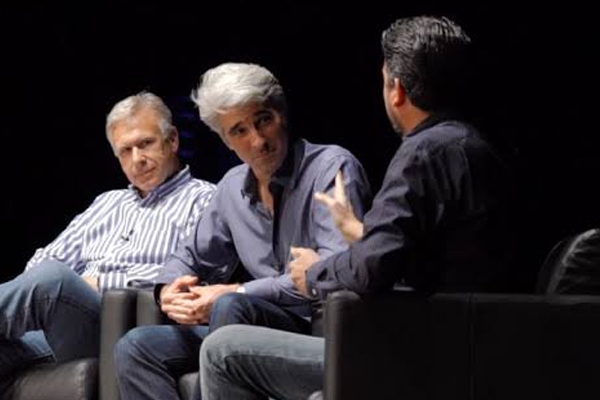
Facebook Changes: Don’t bring sponsors on that don’t have a direct correlation of adding value to your listeners.
I’m not a numbers girl.
If they want to watch 50 podcasters pitch on from 12:00 to 5:30 Central Time, they go to PechaPodPitch.com. If they want to come for the three days to the Mass Media Podcast Summit, go to MassMediaSummit.live and use the code, JULIET. We’ve got an amazing lineup of speakers. Juliet is speaking. I think you were the very first one that had your reservation, so you’ve got to pick your prime spot there. Tracy Hazzard and Tom Hazzard. We’ve got Dave Jackson, who’s a hall of fame podcaster from School of Podcasting. We talk to Marc Guberti on YouTube. We’ve got Molly Mahoney, who is a Facebook ads and chatbots specialist. I’m excited about that. We’ve got Joe Fier and Matt Wolfe from the Hustle and Flowchart podcast who are going to be talking about how they’ve monetized their lists with different affiliates and sponsorships and grow their audience.
We’ve got a lot of people. We’ve got Jim Beach coming on and talking about Pod24. We’ve got yours truly talking about how we leverage LinkedIn. We’ve also got a JJ Flizanes who has seven podcasts, talking about how to pivot your podcasts because you started one podcast seven days and it turned into seven different shows. We’ve got DJ Doug Sandler coming on some of the things about launching your podcast and systemize it. If you need any help with branding, we’ve got the Brand Doctor, Henry Kaminski Jr., my friend out of New Jersey who’s a phenomenal branding expert. If you’re looking for media, we’ve got seventeen times Emmy award-winning journalist and ex news anchor, my friend, Christine Haas, who’s going to be coming on, who runs a media company.
We’ll show you how to get more exposure working with reporters and newscasts and stuff like that. She’s got a whole new thing that I’m excited about. You’re looking for systems and funnels, we got Kim Sutton from Positive Productivity Podcast coming on. It’s an amazing lineup of experts. Matt Brauning who’s a phenomenal entrepreneur and speaker using NLP. He’ll be talking as well. Melinda Wittstock, who’s a top-eight podcaster out there with the Wings of Inspired Business Podcast. She’ll be talking about how they are launching a new gamification platform to help your engagement increase and your downloads skyrocket as well too.
I know you’ve got a ton of value from Scott. That’s why I ask him to co-host with me. Think how much more you’re going to get from not only him, but all those people. Is there a fee to pitch? We didn’t talk about that.
As long as you sign up for a ticket to the Mass Media Summit, you have a ten-minute spot as long as you’re in the first 50 who had signed up for the first 50 that RSVP. Spots are going quickly for that. We’ve already exceeded 100 people that have signed up. Not everybody has a podcast, so there are some spots still available for that. If you sign up for a ticket, you’ll get a link from me to pick your time slot. If you’re working, you can pick your time slot in the afternoon around it. That’s included as long as you’re a ticket holder, whether you bought a general admission ticket or you’re getting a backstage pass ticket.
What he said is important. If you’re even thinking about doing this because the number one thing that happens is you all start and then you quit after about ten episodes and then we go in. We buy your shows and we steal your followers, probably about four followers.
For those who can’t make all three days, it’s recorded, so don’t worry about it. The recordings are included and you’ll be able to download those. We’ve got a private Facebook group that will be live streaming that you’ll be a part of that and you can watch on your phone. The replays will be available usually Monday or Tuesday afterwards. I hate going to events and paying for replays that come out six months later. We pride ourselves. We’ll have the replays available a couple of days after the event.
Scott, thank you. I appreciate you taking the time to do this.
It’s an honor. Thank you so much for having me.
Our next guest is the fabulous, Jim Beach, who’s going to be talking about Radio Syndication. He wants to do for radio what Amazon did for bestsellers. Some of you will know exactly what I’m talking about. Find out about radio syndication and you learn from Scott how much it boosts your numbers to get those sponsors. It might be something that some of you might want to explore. Thank you. I appreciate you for showing up.
Important Links
- WeCloseNotes.com
- The Note Closer Show
- Note Night in America
- Podetize
- Marc Guberti
- Mass Media Podcast Summit
- MassMediaSummit.live
- PechaPodPitch.com
- AMFM247.com
- Pod24
- School for Startups Radio
- The Note Closer Show – Facebook
- Note CAMP
- Jim Beach
About Scott Carson
 Scott Carson is the CEO of WeCloseNotes.com, (an Austin, Texas-based real estate firm) and the host of the popular Note Closers Show Podcast. He has been an active real estate investor and entrepreneur since 2002, focused on the niche of distressed mortgage and note industry since 2008. He has helped to create and educate thousands of other successful note investors who have closed on thousands of deals for their own portfolios through his different educational programs.
Scott Carson is the CEO of WeCloseNotes.com, (an Austin, Texas-based real estate firm) and the host of the popular Note Closers Show Podcast. He has been an active real estate investor and entrepreneur since 2002, focused on the niche of distressed mortgage and note industry since 2008. He has helped to create and educate thousands of other successful note investors who have closed on thousands of deals for their own portfolios through his different educational programs.
He is a highly sought-after speaker and podcast guest on distressed debt, marketing, entrepreneurship and raising private capital with speaking appearances at the National Association of Realtors (NAR) Convention, Noteworthy Convention, Podfest Multimedia Expo, National REIA Cruise along with many other real estate investing clubs and groups across the country. He has also been featured in Investor’s Business Daily, The Wall Street Journal and Inc.com. An avid sports fan and reader, he spends his free time attending sporting events, concerts, and traveling to new places.
Love the show? Subscribe, rate, review, and share!

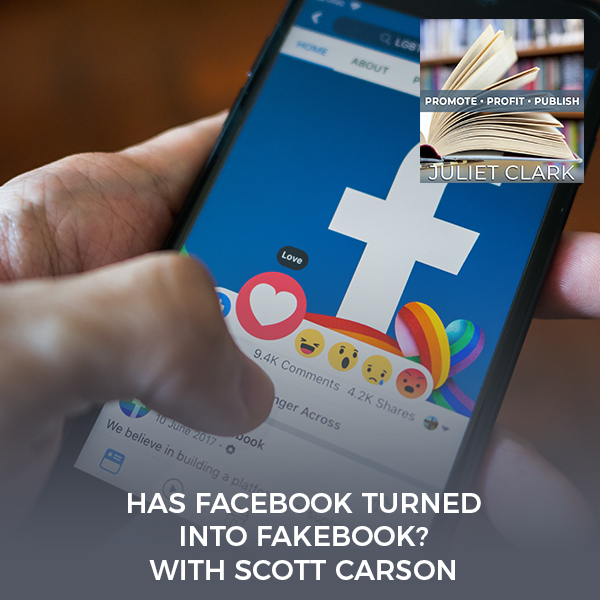







Leave A Comment